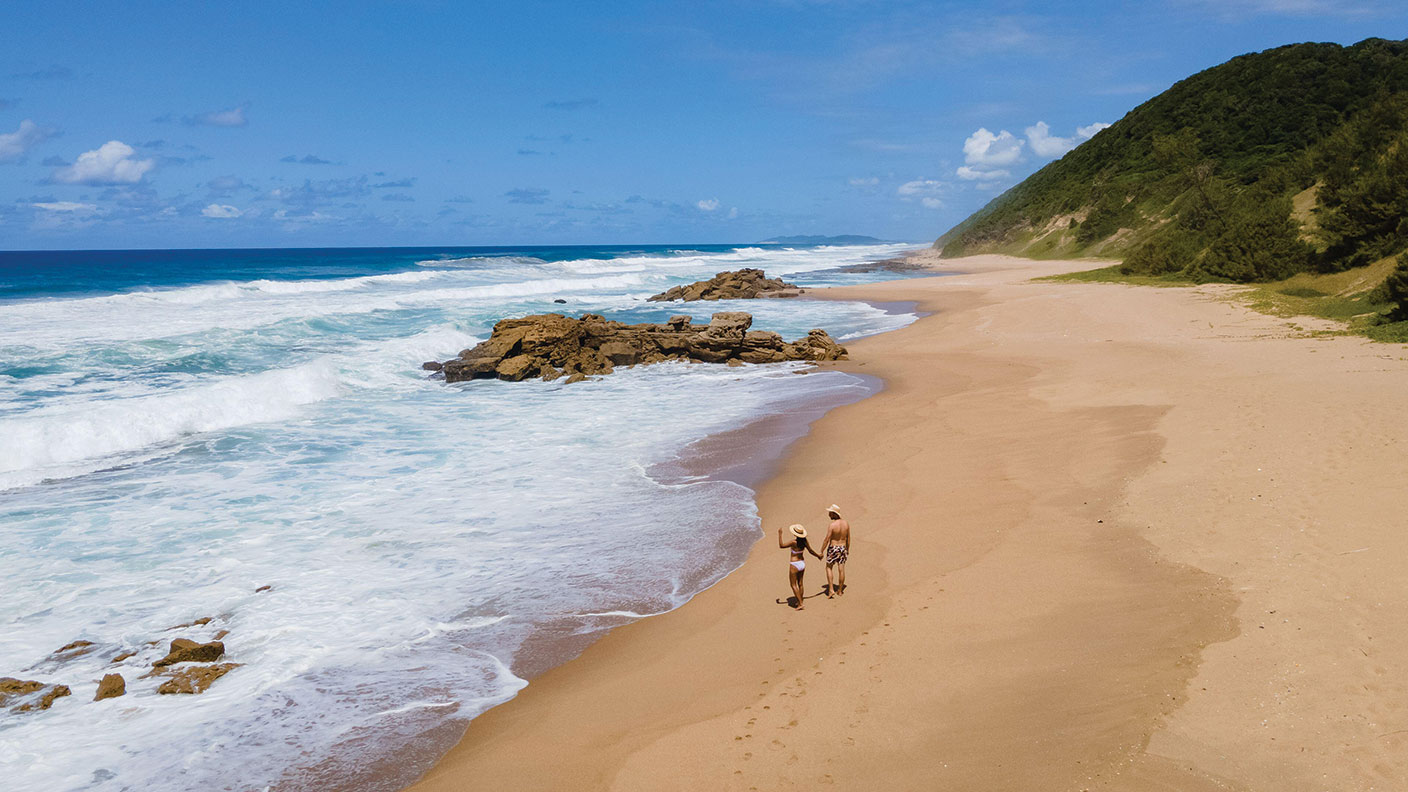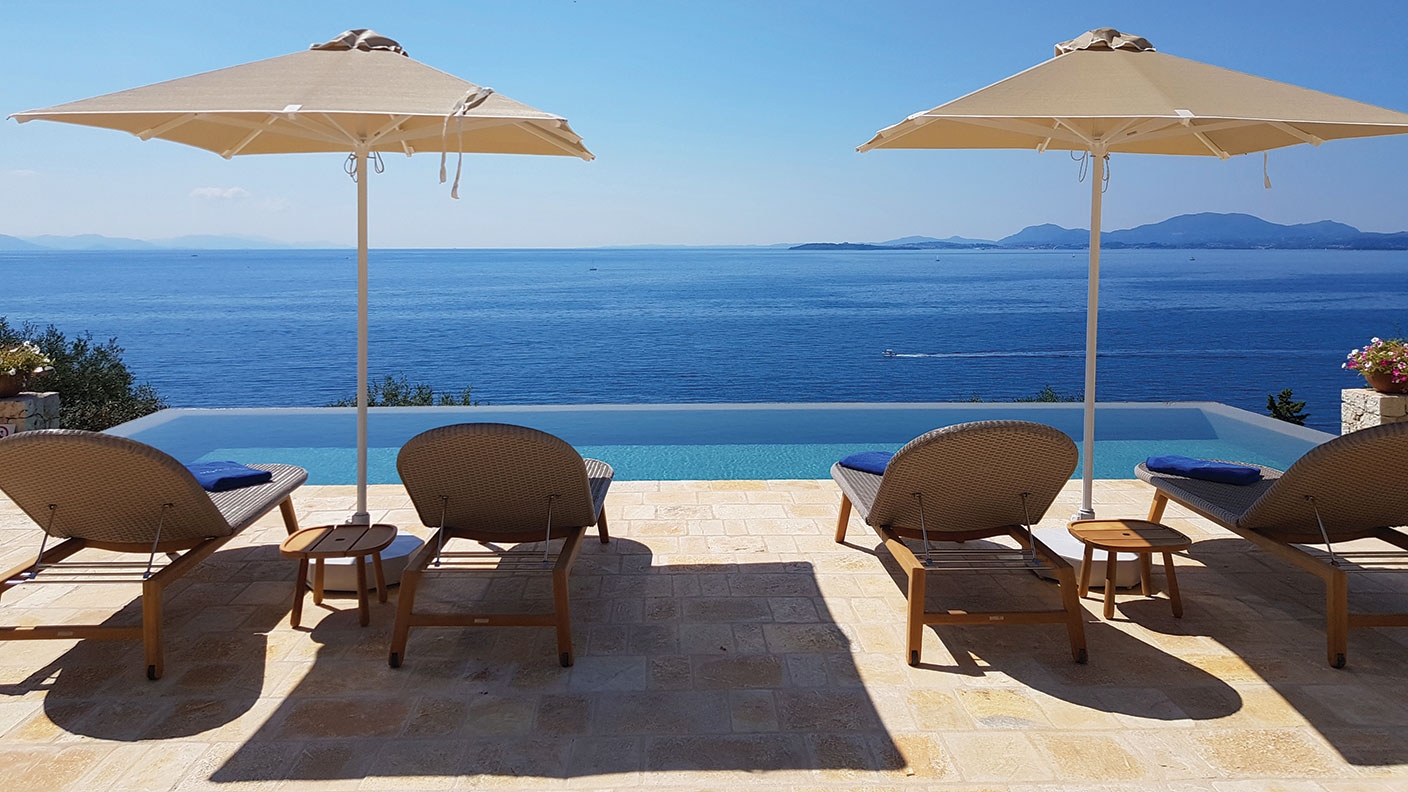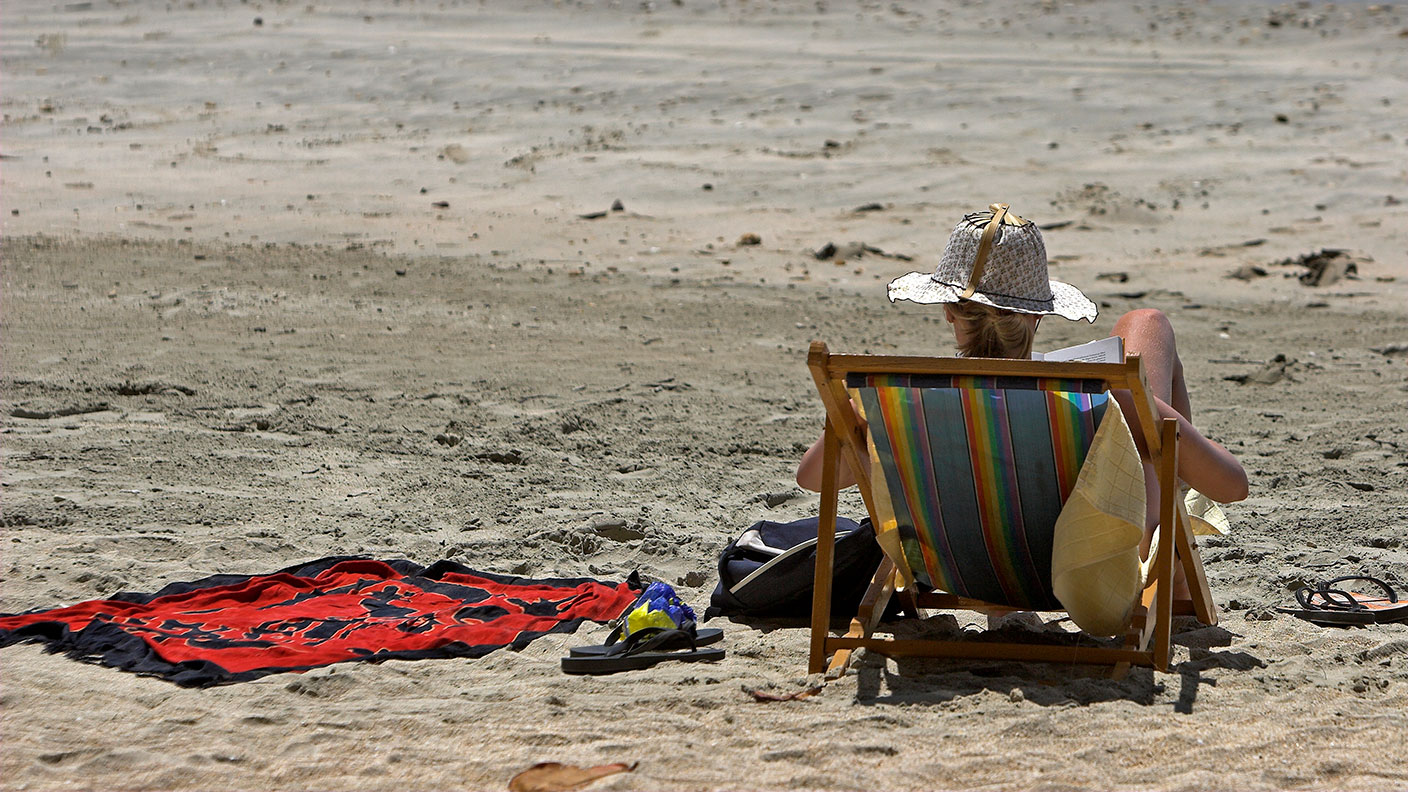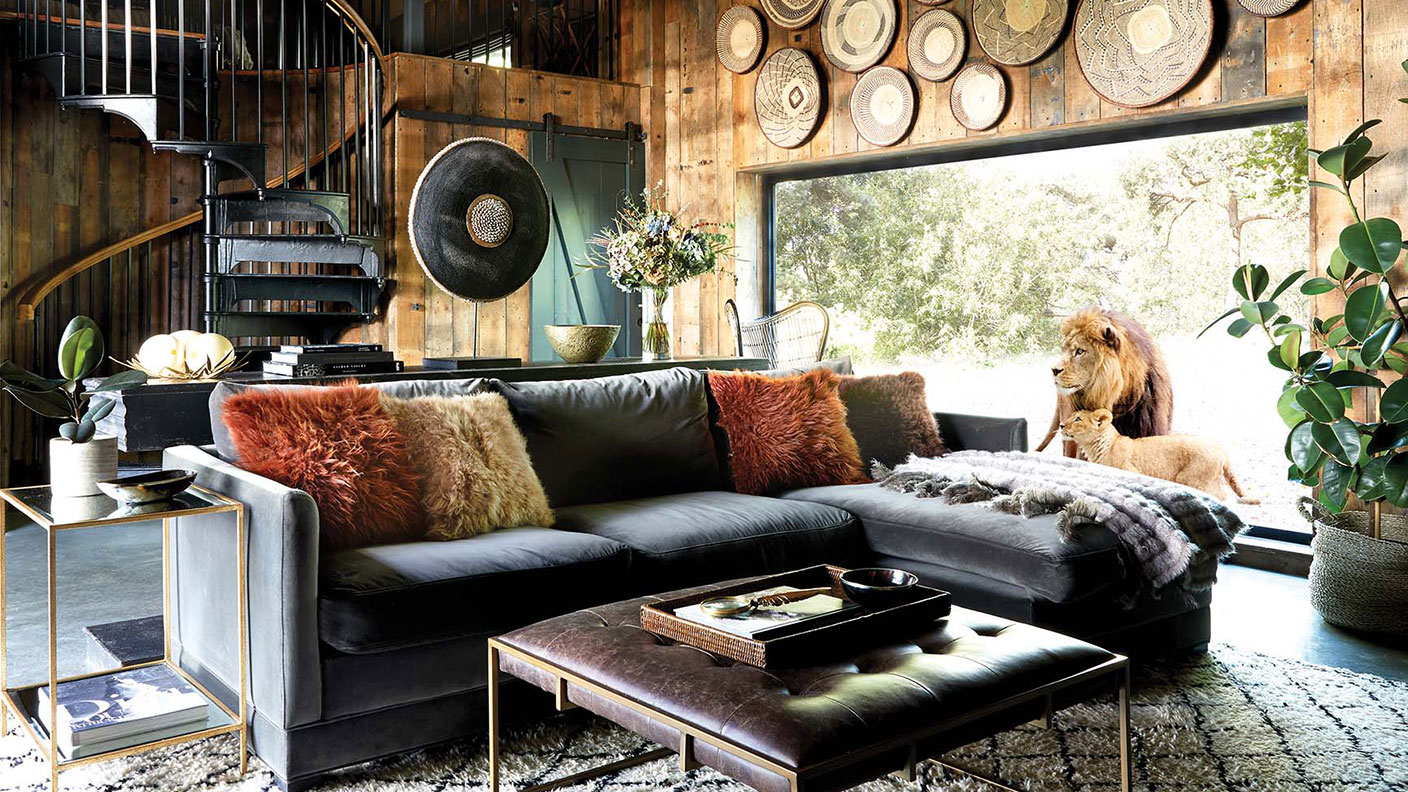A blissful retreat in the Garden of Eden
Botswana's Okavango Delta, birthplace of humanity, feels like a home from home, says Holden Frith.
Get the latest financial news, insights and expert analysis from our award-winning MoneyWeek team, to help you understand what really matters when it comes to your finances.
You are now subscribed
Your newsletter sign-up was successful
Want to add more newsletters?

Twice daily
MoneyWeek
Get the latest financial news, insights and expert analysis from our award-winning MoneyWeek team, to help you understand what really matters when it comes to your finances.

Four times a week
Look After My Bills
Sign up to our free money-saving newsletter, filled with the latest news and expert advice to help you find the best tips and deals for managing your bills. Start saving today!
The Okavango Delta is probably the closest any of us will get to the Garden of Eden. It was here in northern Botswana, about 200,000 years ago, that the first modern humans were born. They lived on the shore of a lake the size of Scotland, fed by rivers stretching across a swathe of southern Africa. Today, the area is mostly desert. All that remains of the old super lake is a network of waterways that fans out across the dry land like branches of a fallen tree, nourishing one of the world’s richest, strangest ecosystems.
In the wettest years, the delta covers an area of 6,000 square miles and spills over into the River Zambezi, where my journey began. I had flown to Victoria Falls and I heard the roar of water before I saw the plume of spray, which fell as a cooling shower as I approached along a shady wooded path. Witnessing the mile-wide curtain of falling water was a visceral experience, its raw power resonating in my stomach as the waters tumbled into the gorge and swirled through the rapids below.
To reach Okavango I followed the river upstream, crossing from Zimbabwe into Botswana. The landscape here in Chobe National Park had a curiously English feel, its gently rolling grasslands punctuated by oak-like mopane trees. Less familiar were the giraffes that sought out their shade. The last part of my journey, on a light aircraft, took me into the delta’s very un-English patchwork of forested islands and sinuous streams.
MoneyWeek
Subscribe to MoneyWeek today and get your first six magazine issues absolutely FREE

Sign up to Money Morning
Don't miss the latest investment and personal finances news, market analysis, plus money-saving tips with our free twice-daily newsletter
Don't miss the latest investment and personal finances news, market analysis, plus money-saving tips with our free twice-daily newsletter
The Wilderness Safaris lodge at Chitabe is in one of the drier spots, its smartly furnished tents and timber walkways built into an outcrop of trees. I had arrived at the end of a long drought, but a strip of lush grass in front of the camp marked the course of a narrow stream, which pulls in thirsty animals from miles around – animals such as the bull elephant, which strolled towards my tent and reached above the canvas roof to pluck leaves as I unpacked.
Distracted by his gentle presence, I did not notice the gathering storm. The sky had darkened, the temperature had dropped and wind was tugging at the ropes of the tent – and then the rain came down in sheets. Twenty minutes later it stopped just as suddenly, in time for afternoon tea, and we set out on our game drive with the sun in our eyes and the indigo-black cloud in retreat. Outside camp we encountered a troop of baboons, a species much-maligned for its near-human capacity for guile and aggression. On this occasion, though, we saw a more endearing side of primate society: a tender exchange between a young baby, his mother and an adult female who wanted to pet the youngster.
A similar intimacy was on display the next morning, when a trio of young lions strode towards our 4x4, nuzzling and jostling as they passed around us. We followed them until the strengthening sun forced them into the shade of a termite mound, where they flopped down on top of each other to wait out the heat of the day.
Big predators are plentiful in the delta, drawn in by the herbivores that feast on its rich grass, but it’s the watery landscape rather than the animals that make this place unique. To experience it up close, I took a short flight and boat ride to Little Vumbura, a beautiful lodge surrounded by water and well hidden by reeds.
The area is best explored by mokoro, a traditional dugout canoe propelled with a pole. A serene form of transport, it enforces a change in perspective: the reeds towered above me as I sat on the floor of the boat, my hips below the waterline, and we glided down a narrow channel. A few moments later we emerged onto open water and I was eye-to-eye with a pair of Angolan reed frogs – and then a tiny malachite kingfisher, his feathers bright in the late afternoon sun.
Dusk fell gently, suffusing the sky with a soft peachy glow, as a flock of storks flew low overhead in search of somewhere to roost. We sought safe harbour, too – a dry spot for sundowners – before turning back to camp. I made the most of my last evening in Eden, savouring the silence of the mokoro as we slipped through the reeds towards the sole human outpost for miles around: Little Vumbura and its oil lamps, glimmering over the dark, glossy water.
Holden was a guest of Audley Travel (audleytravel.com). An eight-night safari costs from £9,580pp, incl. flights.
Get the latest financial news, insights and expert analysis from our award-winning MoneyWeek team, to help you understand what really matters when it comes to your finances.
-
 Should you buy an active ETF?
Should you buy an active ETF?ETFs are often mischaracterised as passive products, but they can be a convenient way to add active management to your portfolio
-
 Power up your pension before 5 April – easy ways to save before the tax year end
Power up your pension before 5 April – easy ways to save before the tax year endWith the end of the tax year looming, pension savers currently have a window to review and maximise what’s going into their retirement funds – we look at how
-
 Should you invest in rum?
Should you invest in rum?Analysis Old rum could be worth thousands of pounds. Is it worth auctioning off?
-
 10 cheapest countries to visit
10 cheapest countries to visitTravel We look at the cheapest countries to visit where your money will stretch the furthest without compromising on quality
-
 Best cards for travel abroad
Best cards for travel abroadAdvice We weigh up the best cards for travel, whether you’re going on holiday or you go abroad regularly
-
 The best credit cards for cashback
The best credit cards for cashbackThe best credit cards for cashback can help you earn rewards on everyday spending. We list some of the top deals on the market
-
 A South African adventure
A South African adventureReviews From buzzy Johannesburg to big game drives, South Africa has it all, says Katie Monk
-
 Villa Gaia Rock: perfect harmony in Corfu
Villa Gaia Rock: perfect harmony in CorfuReviews Blend in with your surroundings at the new Villa Gaia Rock in Corfu.
-
 Holiday reading: five books to make sense of the 1970s – and the 2020s
Holiday reading: five books to make sense of the 1970s – and the 2020sReviews With raging inflation, booms, busts and political crises, the 1970s has a reputation as a relentlessly awful decade. But things aren’t that simple, says Merryn Somerset Webb. Here, she picks five books to put it all in context.
-
 Indulge your wild side with a safari in deepest Kent
Indulge your wild side with a safari in deepest KentReviews Get up close to the animals at Port Lympne Hotel and Reserve, says Matthew Partridge